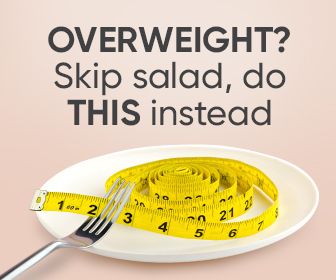Snacking and eating small, frequent meals have been promoted as a way to control hunger, boost metabolism, and maintain steady energy levels. The idea is that eating every few hours prevents cravings and keeps the body from going into “starvation mode.” But this approach often backfires, leading to stalled weight loss, increased hunger, and a disrupted metabolism.
The human body evolved to handle periods of eating followed by fasting. Constant snacking interferes with hunger hormones, digestion, and fat-burning mechanisms. Instead of preventing overeating, small meals can make it harder to control appetite, leading to more calorie consumption over time.
Here’s why frequent eating can sabotage weight loss—and what to do instead.
1. Snacking Keeps Insulin Levels Elevated, Preventing Fat Loss
Every time food is eaten, insulin is released to manage blood sugar levels. Insulin plays a key role in storing energy, particularly as fat. When insulin levels remain high throughout the day—due to frequent eating—the body stays in fat-storage mode instead of fat-burning mode.
In contrast, longer gaps between meals allow insulin to drop, signaling the body to burn stored fat for energy. Studies show that people who eat fewer meals with longer fasting periods have lower insulin levels and higher fat oxidation rates compared to those who eat frequently.
This is why fasting periods—such as eating two or three meals a day without snacks—promote more fat burning than constant grazing.
2. Frequent Eating Disrupts Natural Hunger and Fullness Signals
The hormones ghrelin (hunger) and leptin (satiety) regulate when and how much a person eats. Ghrelin rises before meals to signal hunger, while leptin increases after eating to indicate fullness.
When people eat every few hours, ghrelin never rises properly, and leptin never gets a strong enough signal. This disrupts the natural hunger cycle, making people feel constantly hungry and less satisfied after meals.
When meals are spaced further apart, ghrelin functions properly, leading to stronger hunger before eating and better satisfaction afterward. This prevents constant snacking and reduces overall calorie intake without requiring willpower.
3. Small Meals Leave People Unsatisfied, Leading to More Eating
A small meal doesn’t provide enough food volume to stretch the stomach, which is a key factor in feeling full. The stomach contains stretch receptors that send signals to the brain when it’s full, helping to regulate appetite.
Eating small meals never fully activates these stretch receptors, leading to lingering hunger and increased food cravings. This is why people who snack throughout the day often end up consuming more total calories than those who eat fewer, larger meals.
Eating larger, well-balanced meals with protein, fiber, and healthy fats ensures that the stomach gets the stretch it needs, leading to greater satiety and fewer cravings between meals.
4. Digestion Works Best with Periods of Rest
The digestive system isn’t designed to work non-stop. When food is constantly consumed, the body is always in digestion mode, never getting a chance to fully process and clear waste. This can lead to bloating, sluggish digestion, and poor nutrient absorption.
When there’s a break between meals, digestion completes fully before the next food intake. This improves gut health, allows for better nutrient absorption, and promotes a process called autophagy, where the body clears out damaged cells and regenerates.
Longer meal gaps—such as 4–6 hours between meals—support more efficient digestion and metabolic function.
5. Grazing Encourages Mindless Eating and Overconsumption
Frequent snacking often leads to unconscious overeating. A handful of nuts here, a bite of something there—it all adds up. Research shows that people who eat multiple small meals a day often underestimate their total calorie intake compared to those who eat defined meals.
Snacking also increases exposure to hyper-palatable, processed foods, which are engineered to override natural satiety signals. This makes it harder to stop eating when full, leading to more cravings and excess calorie consumption.
Focusing on intentional, structured meals rather than grazing throughout the day makes it easier to control intake and maintain a natural sense of fullness.
6. The “Boosting Metabolism” Myth—Larger Meals Work Better
A common argument for frequent eating is that it “boosts metabolism” by keeping the body’s energy expenditure high. However, studies show that the total number of calories burned is the same whether food is eaten in many small meals or a few large meals.
In fact, larger meals may have a slight advantage because the body burns more calories processing a larger amount of food at once. The thermic effect of food—the energy used to digest and metabolize nutrients—is higher when eating fewer, larger meals compared to constant snacking.
Instead of focusing on eating every few hours, it’s more effective to focus on meal quality and portion balance.
Fewer, Larger Meals Create Better Appetite Control and Fat Loss
Snacking and frequent small meals interfere with the body’s natural hunger cycles, keep insulin levels high, and encourage overeating. While the idea of eating every few hours may seem beneficial, it often prevents true satiety, disrupts metabolism, and makes weight loss harder.
Spacing meals apart and focusing on larger, well-balanced meals with protein, healthy fats, and fiber leads to better appetite regulation, improved digestion, and more efficient fat burning. When hunger and satiety signals are functioning correctly, food intake becomes naturally regulated, reducing cravings and making weight loss easier without restriction.








